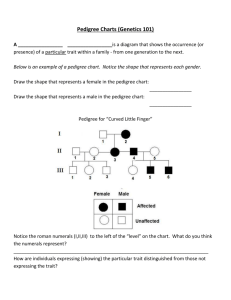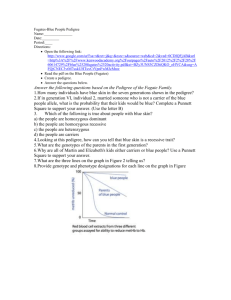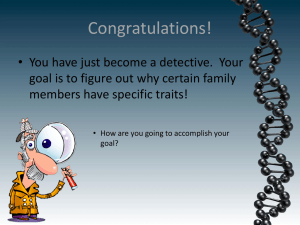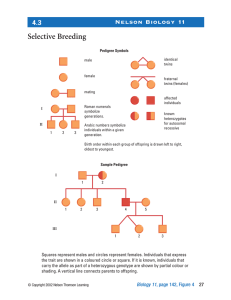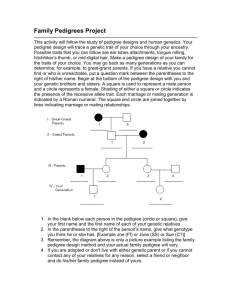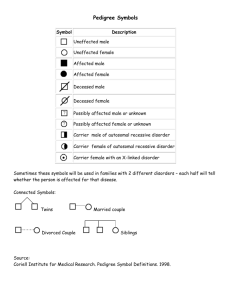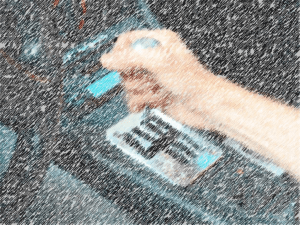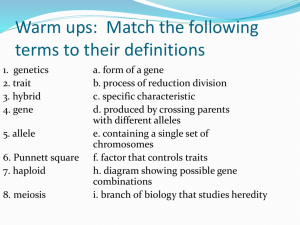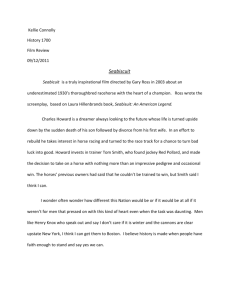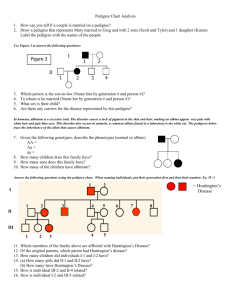Pedigree Lab
advertisement
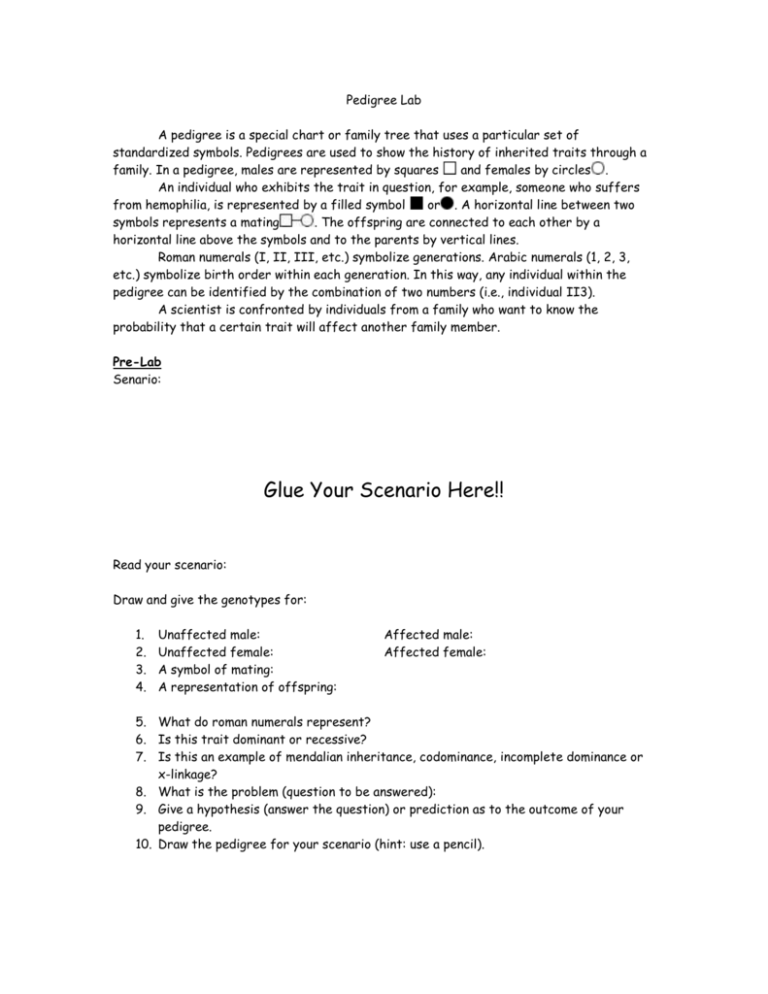
Pedigree Lab A pedigree is a special chart or family tree that uses a particular set of standardized symbols. Pedigrees are used to show the history of inherited traits through a family. In a pedigree, males are represented by squares and females by circles . An individual who exhibits the trait in question, for example, someone who suffers from hemophilia, is represented by a filled symbol or . A horizontal line between two symbols represents a mating . The offspring are connected to each other by a horizontal line above the symbols and to the parents by vertical lines. Roman numerals (I, II, III, etc.) symbolize generations. Arabic numerals (1, 2, 3, etc.) symbolize birth order within each generation. In this way, any individual within the pedigree can be identified by the combination of two numbers (i.e., individual II3). A scientist is confronted by individuals from a family who want to know the probability that a certain trait will affect another family member. Pre-Lab Senario: Glue Your Scenario Here!! Read your scenario: Draw and give the genotypes for: 1. 2. 3. 4. Unaffected male: Unaffected female: A symbol of mating: A representation of offspring: Affected male: Affected female: 5. What do roman numerals represent? 6. Is this trait dominant or recessive? 7. Is this an example of mendalian inheritance, codominance, incomplete dominance or x-linkage? 8. What is the problem (question to be answered): 9. Give a hypothesis (answer the question) or prediction as to the outcome of your pedigree. 10. Draw the pedigree for your scenario (hint: use a pencil). Pedigree Chart Conclusion Claim (Answer your question) Evidence (Explain your claim using numbers) Reasoning (Use your scientific knowledge about the condition to explain why your evidence is correct)
